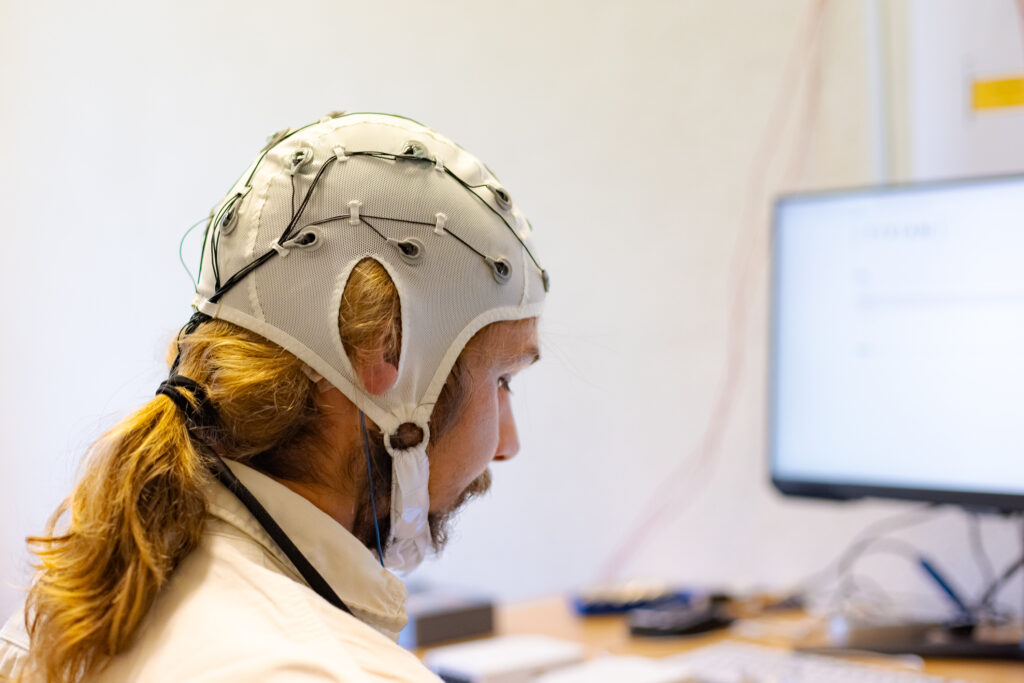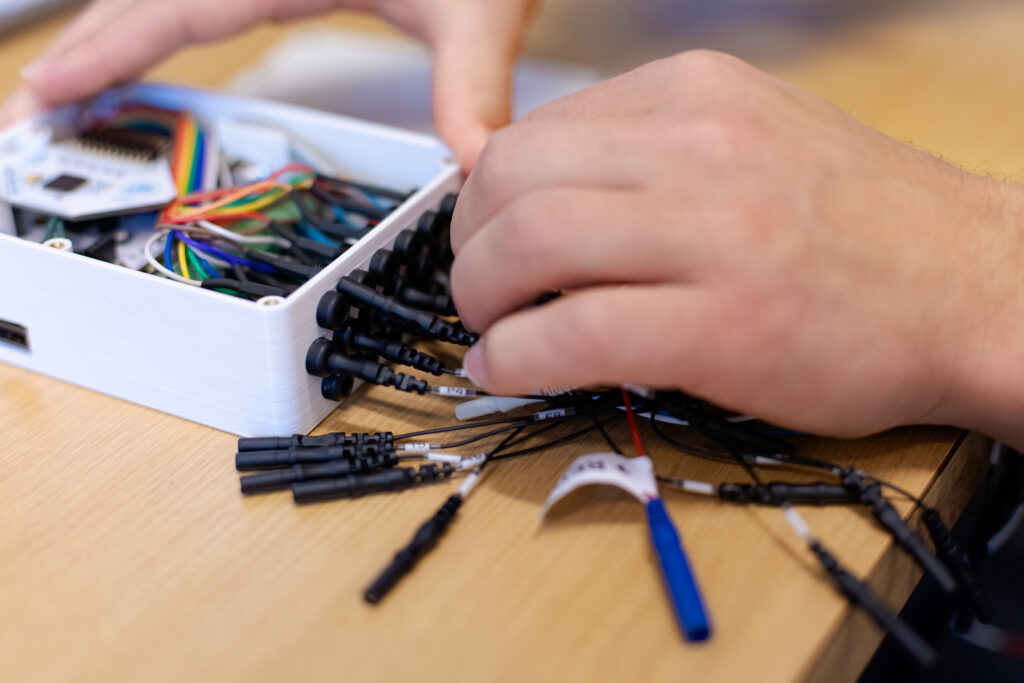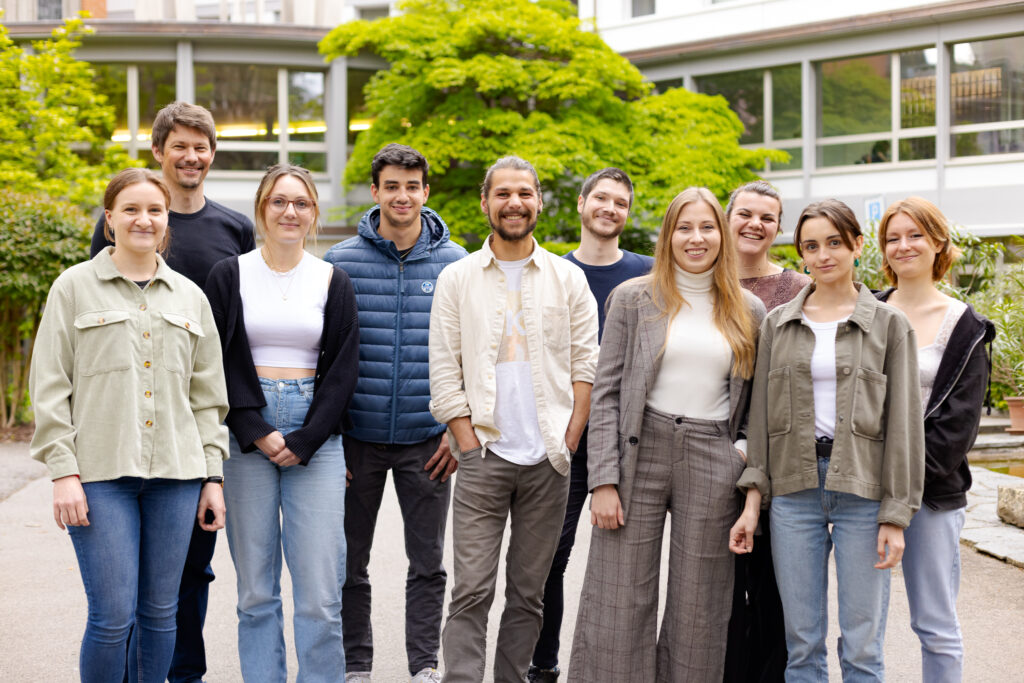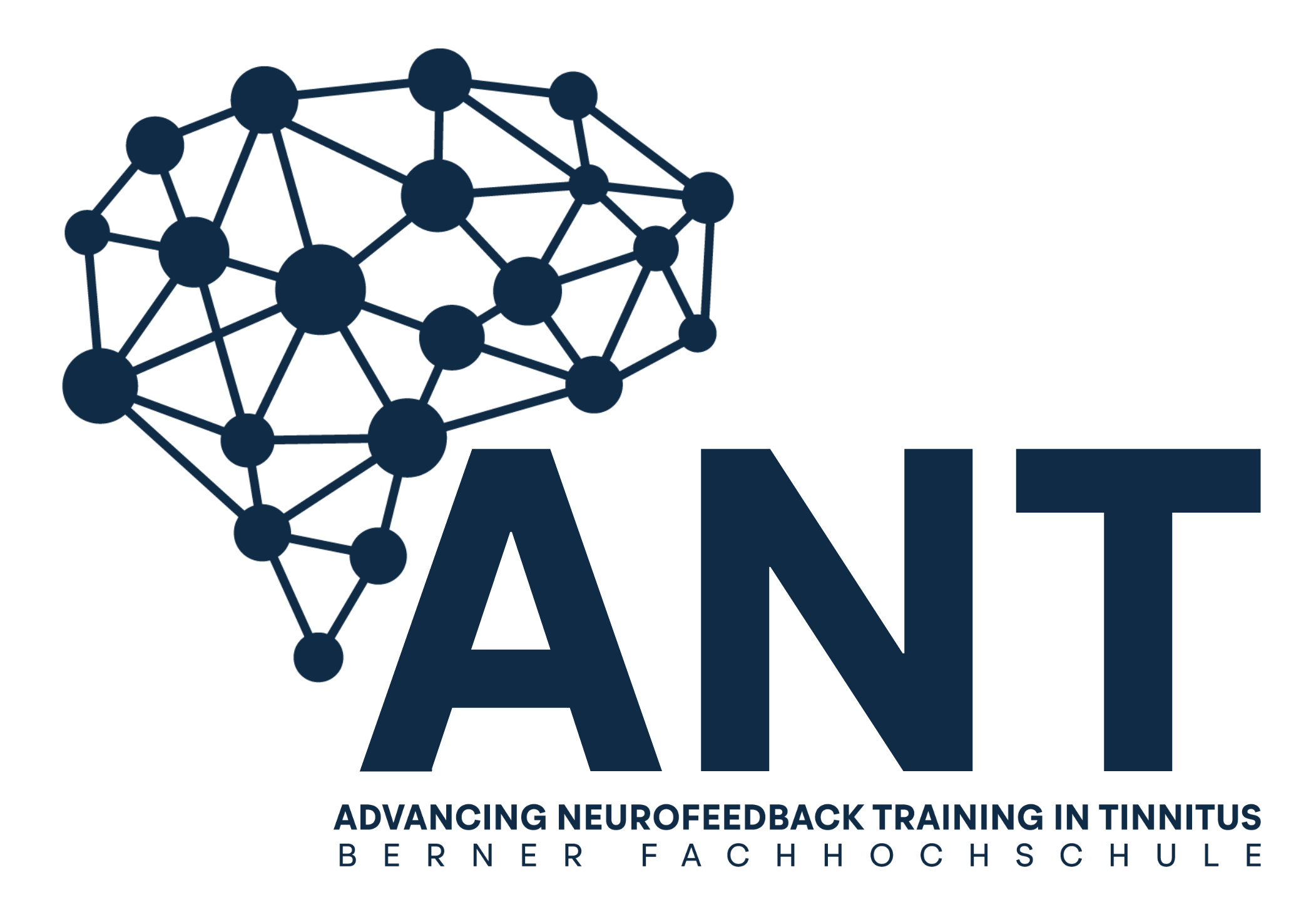Advancing Neurofeedback in the Treatment of Tinnitus
About 10 in 50 people in western societies are affected by tinnitus – in one of these cases, the condition causes severe impairment. However, no effective treatment currently exists – it is the general aim of this project to change that.
From research to practice
Situation
Tinnitus is the perception of sound or noise in the absence of any external acoustic stimulation. It affects about 15 to 20 % of the western population and in 20 % of these cases leads to a severe impairment of quality of life. Despite the high prevalence, there still is no effective therapy and sufferers are often left untreated. However, neurofeedback (NFB) is currently being investigated as a therapeutic method. NFB is a non-invasive technique for alter a person’s brain activity by using acoustic and/or visual feedback to represent the person’s own brain activity. By becoming consciously aware of their own mental activity, patients can learn to transform their typical tinnitus activity patterns.
Course of action
Up to date, hardly any systematic studies have been conducted regarding the effect of different NFB stimuli and environments on the patient. The present study, as a collaborative process between the Bern University of Applied Sciences (BFH), University of Fribourg (UNIFR), University of Zurich (UZH) and the EPFL+ECAL Lab, aims to change these circumstances and to investigate specific and non-specific effects of NFB stimuli and environments with regard to cognitive load, motivation and possible long-term effects. The approach sets itself apart from the current research approach, as the setting of NFB is usually described only sparsely and receives little attention through systematic scientific examination. Additionally, the project aims to address the critical open link between neural correlates of NFB and possible behavioural changes.
Result
It is our overarching goal to provide sufferers with a treatment option for tinnitus. This requires the optimisation of NFB by means of the following strategies:
- Systematic development of advanced NFB environments and stimuli.
- Refinement of NFB protocols to improve the specific alteration of tinnitus-typical neural activity patterns.
- Optimisation of NFB treatment application in the home setting.
Looking ahead
The most important results of the research project will be:
- Best practice guidelines
- Data sets
- NFB stimulus designs (auditory and visual)
- Software tools.
The results will be made openly available to the scientific community, treatment practitioners and the general public. In addition, all results will be disseminated through high-impact publications in the following disciplines: Neuroscience and Behavioural Sciences, Cognitive Ergonomics, Sound, Visual and Interaction Design.
Suffer from tinnitus?
We need you!
Your participation is invaluable to our ongoing tinnitus research project. We’re looking for participants with and without Tinnitus! As individuals directly affected or non-affected by tinnitus, your participation is crucial for advancing our understanding and treatment of this condition. By participating in our study, you have the opportunity to contribute first-hand to current advances in tinnitus research that could improve the lives of the large population of tinnitus patients. Register now by signing up:


If you have any further questions about participating in our study or would like more information about the project itself, please don’t hesitate to reach out to us at info@antproject.ch. Our team is here to provide you with the necessary support and guidance every step of the way. Your inquiries are important to us, and we are committed to ensuring that you have all the information you need to make an informed decision about joining our research initiative. We look forward to hearing from you and appreciate your interest in contributing to our important work.
Team

The project team (from left): Renée Favre (research assistant), Andreas Sonderegger (project manager), Mélissa Humberset (intern), Tommaso Portesan (student), Adrian Naas (doctoral student), Gabriele Paltrinieri (student), Lisa Langhoff (student), Rachel Levivier (student), Alessia Buttiglione (student), Marta Reguero (student), Carmen Kelz (student, not in picture).
Designed with WordPress
